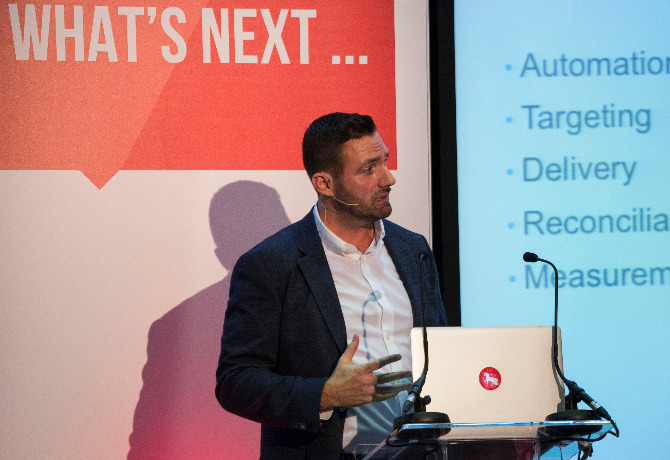Technology will soon enable advertisers to measure the impact of cross-media brand advertising, as well as more direct-response campaigns, according to a senior figure at Facebook’s ad serving and measurement platform Atlas.
Originally built by Microsoft, Facebook acquired Atlas for $100m in 2013 and rebuilt it “from the ground up”, with the aim of offering advertisers highly accurate, cross-device data, and a new form of behavioural tracking of the network’s 1.5 billion users to replace the cookie for the mobile age.
Speaking at DigitasLBi’s ‘What’s next … in media?’ event in London, Damian Burns, global head of sales at Atlas, said the platform now boasts “hundreds” of clients – from “full-switch” to “road-teating” – and he urged attendees to take a new approach to cross-device data.
“A lot of ads don’t talk to you – they are intrusive and irrelevant, interruptive and incessant,” said Burns. “A lot of this is down to the fact cookies do not work beyond desktop. We need to move away from the line of code that doesn’t work on mobile, and we need to embrace identity, with scale and fidelity.”
“Imagine you could connect the dots to those amazing stories brands tell, and prove the impact it has”
Describing the huge variety of “shiny, sexy” new technologies pitched to marketers each year, he said it was important to focus of what will make a different in the medium- to long-term, including the ability to understand the impact of brand stories.
Burns said: “If you think about brand advertising, it is kind of direct response without the measurement. Imagine you could connect the dots to those amazing stories brands tell, and prove the impact it has, and how it translates to revenue.”
Burns had been introduced on-stage by DigitasLBi’s chief media officer, international, Paul Dalton, who urged agencies to use data to offer true precision to clients: “Clout used to be about scale; now it’s about precision.
“The agencies have been guilty of professing false precision, and that is because of bad data, based on audiences that we may presume will buy our products, rather than will buy. There needs to be a focus on what people do, rather than what they say,” said Dalton.








